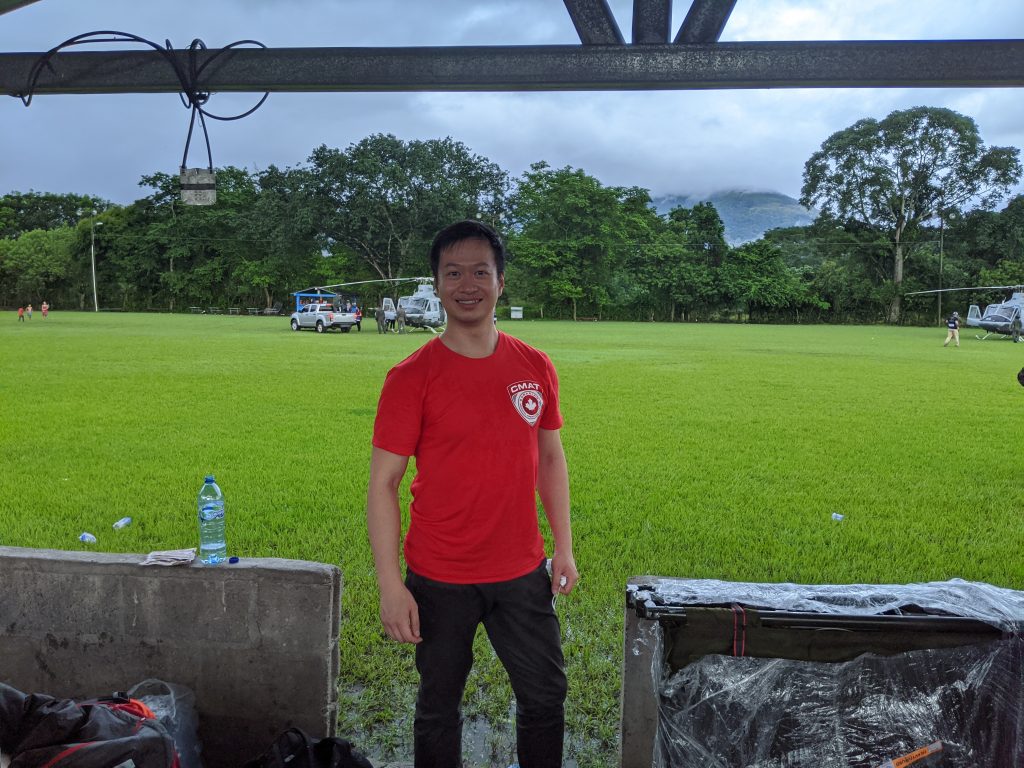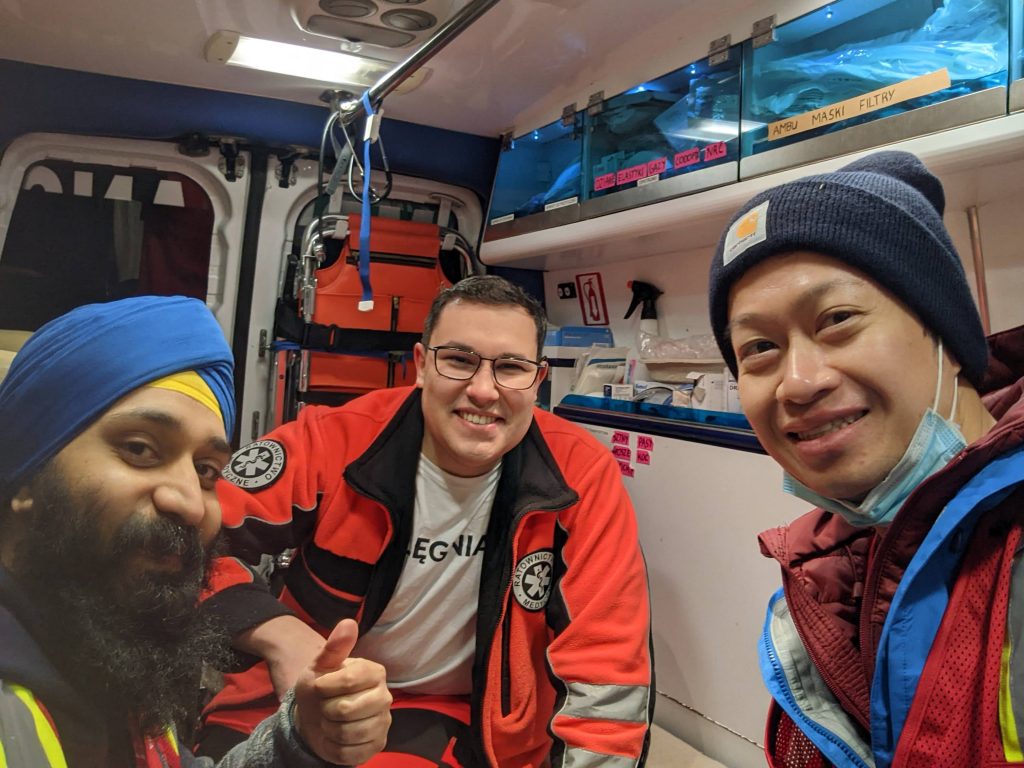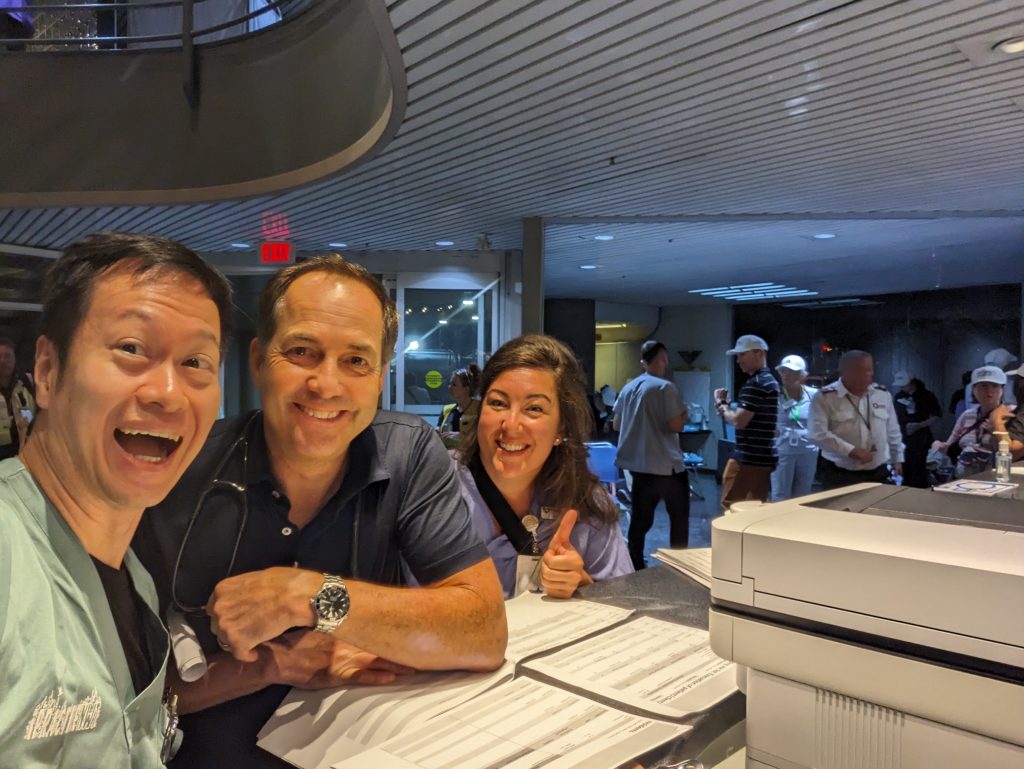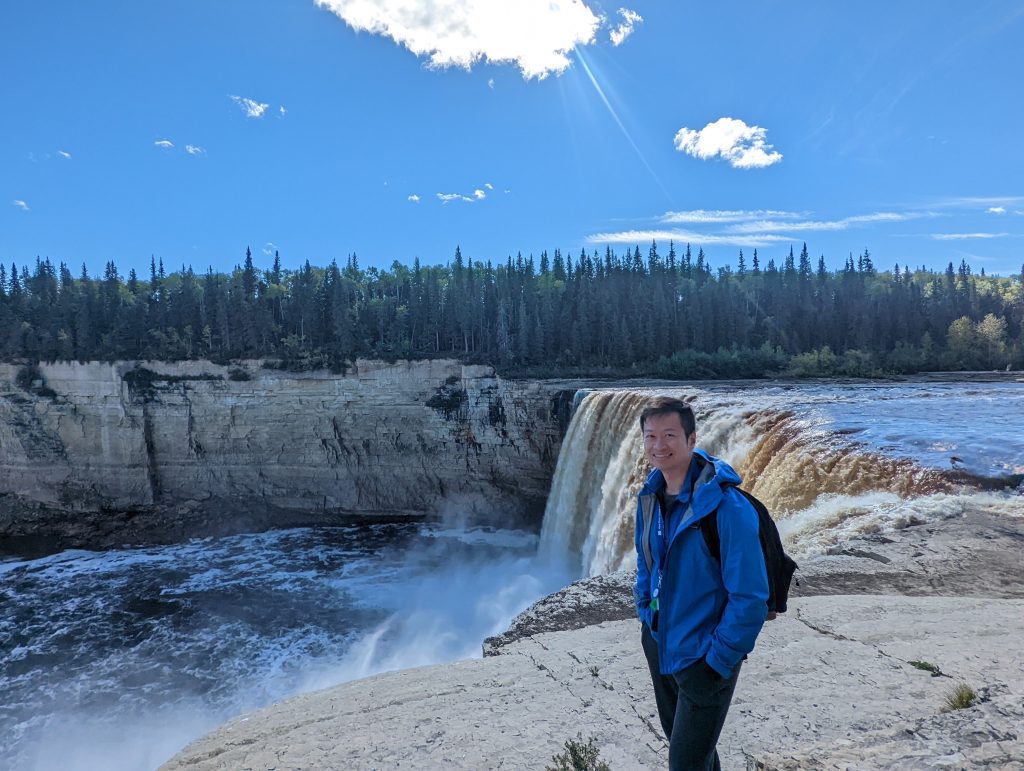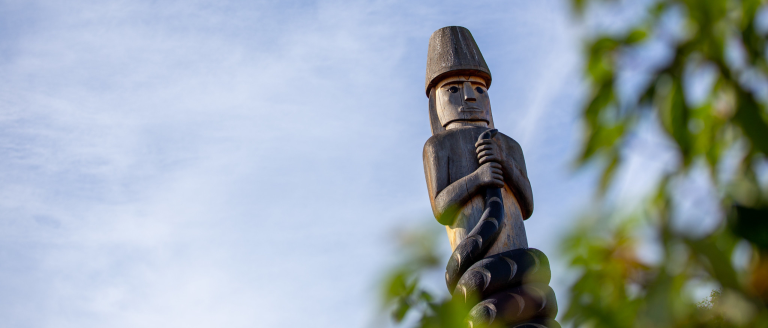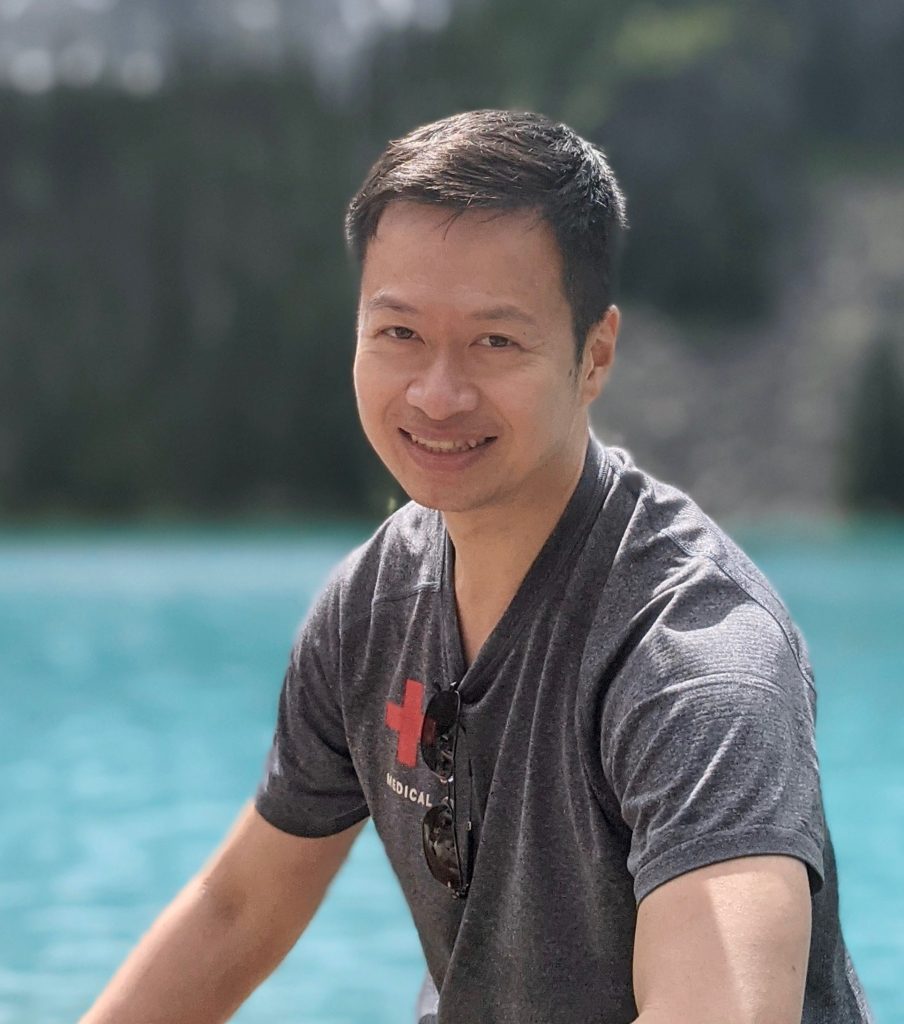
ANTHONY FONG
CLINICAL ASSISTANT PROFESSOR
Site:
Vancouver – St. Paul’s Hospital and Mount Saint Joseph Hospital
Anthony Fong, Clinical Assistant Professor with UBC’s Department of Emergency Medicine.
Can you share a little bit about your educational background and journey, and how you got to where you are today?
I trained in family medicine at the University of Toronto, finishing residency in 2007. Involved in rural electives and global health projects in my med school days, I knew early on that I wanted to do broad-scope family practice in a rural setting, so I moved to Iqaluit, Nunavut and was a family doctor there providing clinic, emergency, inpatient and obstetrical care for several years. In 2014, I came back to Vancouver, my hometown, and wrote the CCFP-EM exam as a practice-eligible candidate. Since then, I’ve worked in Ridge Meadows, Delta, Richmond, and now I’m a staff ER physician at St. Paul’s and Mount St. Joseph Hospitals. I still try to make time for rural GP locums when I can. Along the way, I’ve also done extra training in global health, journalism, disaster management and disaster medicine.
What inspired you to work in emergency medicine?
As I was growing up, I was always really impressed by the high-paced heroics of emergency doctors and the crisis-management skills we learn in the ER really prepare us for life in a way no other specialty can. ER doctors are adaptable and make tough decisions daily in the face of uncertainty, which is a skill the world needs right now.
What impact would you like to see your work have on patients, communities, and society at large?
In the past several years, I’ve developed a keen interest in disaster management and in how health-care workers are often thrown into mass-casualty responses with little training, often in rural or remote settings. As part of my master’s thesis and related work, I would like to understand how we can better prepare health-care workers and institutions for these events, which are predicted to become more frequent with climate change.
What excites you most about your work, and what are you most proud of?
There is a lot of room in our profession for storytelling and communication with the public. When I do find time to write, it’s mostly about others’ stories and sometimes my own. For example, I wrote a story about my locum on Fogo Island, Newfoundland, last year, that was the most-read story on CBC nationally for a day. I also interviewed several health-care workers for a story early last year on Canada’s ER crisis, pre-empting many media reports on the same topic.
What is one piece of advice that you would give to current trainees?
Be a generalist; the world needs our adaptability and agility. Dabble in as many topics as you can, for as long as possible.
When you’re not working, where can we find you?
Hiking somewhere in the world with my partner. I’m also often at latin dance festivals.
